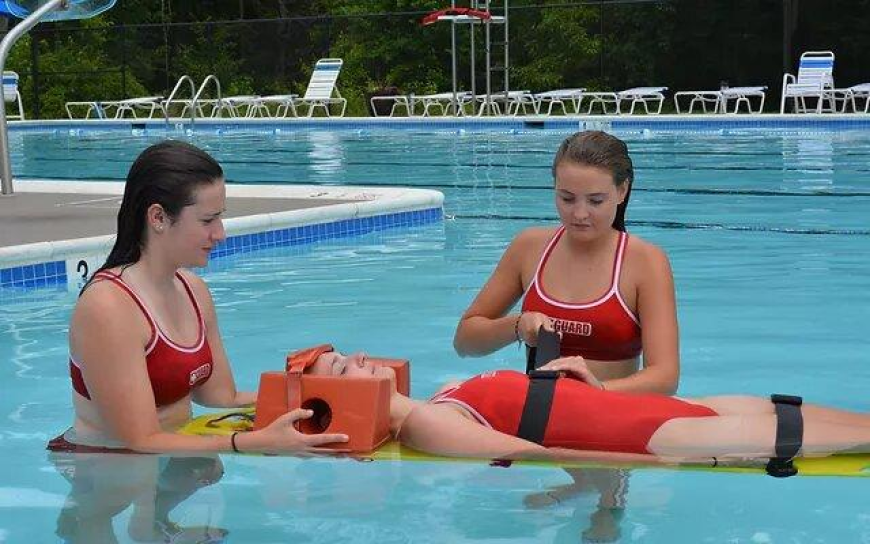NJ Lifeguard Requirements for 2025: A Complete Guide
From certifications to physical fitness and age requirements, every detail matters when it comes to safeguarding lives on the beach or at the pool.

Lifeguarding in New Jersey is a rewarding and respected responsibility that requires dedication, training, and a commitment to safety. Whether you’re planning to become a first-time lifeguard or looking to update your credentials for the upcoming season, it’s essential to understand the updated lifeguard requirements for New Jersey in 2025.
This complete guide breaks down all the essential information you need to prepare for a lifeguarding role in New Jersey. From certifications to physical fitness and age requirements, every detail matters when it comes to safeguarding lives on the beach or at the pool.
1. Minimum Age Requirement
To work as a lifeguard in New Jersey in 2025, candidates must meet age requirements depending on the location and the type of facility:
-
Public Pools: Minimum age is 15 years old.
-
Open Water or Ocean Lifeguards: Minimum age is typically 16 or 17, depending on the municipality.
Tip: Always check with the local authority or employer, as age policies may vary slightly between towns and counties.
2. Lifeguard Certification Requirement
All lifeguards in New Jersey must hold a valid lifeguard certification that covers:
-
CPR for the Professional Rescuer
-
First Aid
-
Water Rescue Skills
-
AED Training
The certification must be obtained from a nationally recognized organization and must be current (not expired) during employment.
3. Open Water Lifeguard Training (For Beaches and Lakes)
Lifeguards working at the shore, lakes, or any open-water location must undergo specialized training in:
-
Ocean and lake rescue techniques
-
Dealing with rip currents and surf conditions
-
Use of rescue boards, buoys, and paddle crafts
-
Team-based search and rescue protocols
This training is usually part of an advanced certification or offered as an additional module to pool-based training.
4. Swimming Skills and Physical Fitness
Candidates must demonstrate strong swimming and rescue abilities. Typical physical test requirements include:
-
Timed swim: 300–550 yards using freestyle or breaststroke
-
Tread water: 2 minutes without hands (legs only)
-
Brick retrieval test: Dive to retrieve a 10-pound brick from the deep end and swim it back within a set time
-
Run-swim-run (for beach lifeguards): Often required as part of a physical test in coastal towns
These tests ensure candidates are physically fit and capable of responding to emergencies swiftly and efficiently.
5. Medical Clearance and Background Checks
Many employers in NJ will request:
-
A recent physical exam or medical clearance proving you are healthy and capable of performing rescue duties.
-
A background check, especially if the position involves supervising children or working in public parks.
Being medically cleared is not only a requirement but also crucial for your safety while on duty.
6. Local Ordinances and Municipality Tests
In addition to national certification, many New Jersey towns and municipalities (especially coastal areas) conduct their own written and physical exams. These may include:
-
Specific water rescue simulations
-
Local policies and protocols knowledge
-
Shoreline navigation or equipment use
It’s essential to contact the hiring town or recreation department ahead of time to learn their unique testing process and schedule.
7. Renewal and Recertification
Certifications typically last two years. Lifeguards must:
-
Attend recertification courses before their credentials expire
-
Keep up with updates in CPR guidelines, rescue techniques, and first aid standards
-
Continue practicing physical skills to maintain performance levels
Some employers offer in-house recertification, while others may require you to attend an external class.
8. Soft Skills and Professionalism
While physical ability and certifications are critical, employers are increasingly focusing on soft skills, such as:
-
Alertness and attention to detail
-
Strong communication skills
-
Professionalism and punctuality
-
Customer service mindset
Lifeguards often represent the face of public safety in aquatic environments. Being courteous, calm under pressure, and responsive to patrons’ needs are just as important as physical skills.
9. Continuing Education and Career Growth
New Jersey offers many opportunities for lifeguards to advance their careers:
-
Become a head lifeguard or supervisor
-
Train as an instructor or safety officer
-
Gain EMT or emergency response certifications
-
Work year-round at indoor facilities or as part of rescue teams
Staying engaged with continuing education helps you remain competitive and enhances your overall ability as a public safety professional.
10. Legal and Safety Compliance
Lifeguards must always adhere to state and federal safety regulations, including:
-
OSHA (Occupational Safety and Health Administration) guidelines
-
Local Department of Health codes for pool operation
-
Rules regarding emergency action plans (EAPs) and incident reporting
Understanding and following these rules protects both the lifeguard and the patrons they serve.
Final Thoughts
Becoming a lifeguard in New Jersey in 2025 requires more than just swimming skills — it demands dedication, training, and a full understanding of safety responsibilities. By following the guidelines outlined above, candidates can prepare effectively and confidently for the upcoming season.
Whether you're patrolling a busy beach or supervising a community pool, being a lifeguard is a position of trust, leadership, and lifesaving impact. Make sure you're ready, qualified, and up-to-date with all the requirements to serve your community safely.

 benjaminowenleo
benjaminowenleo 

